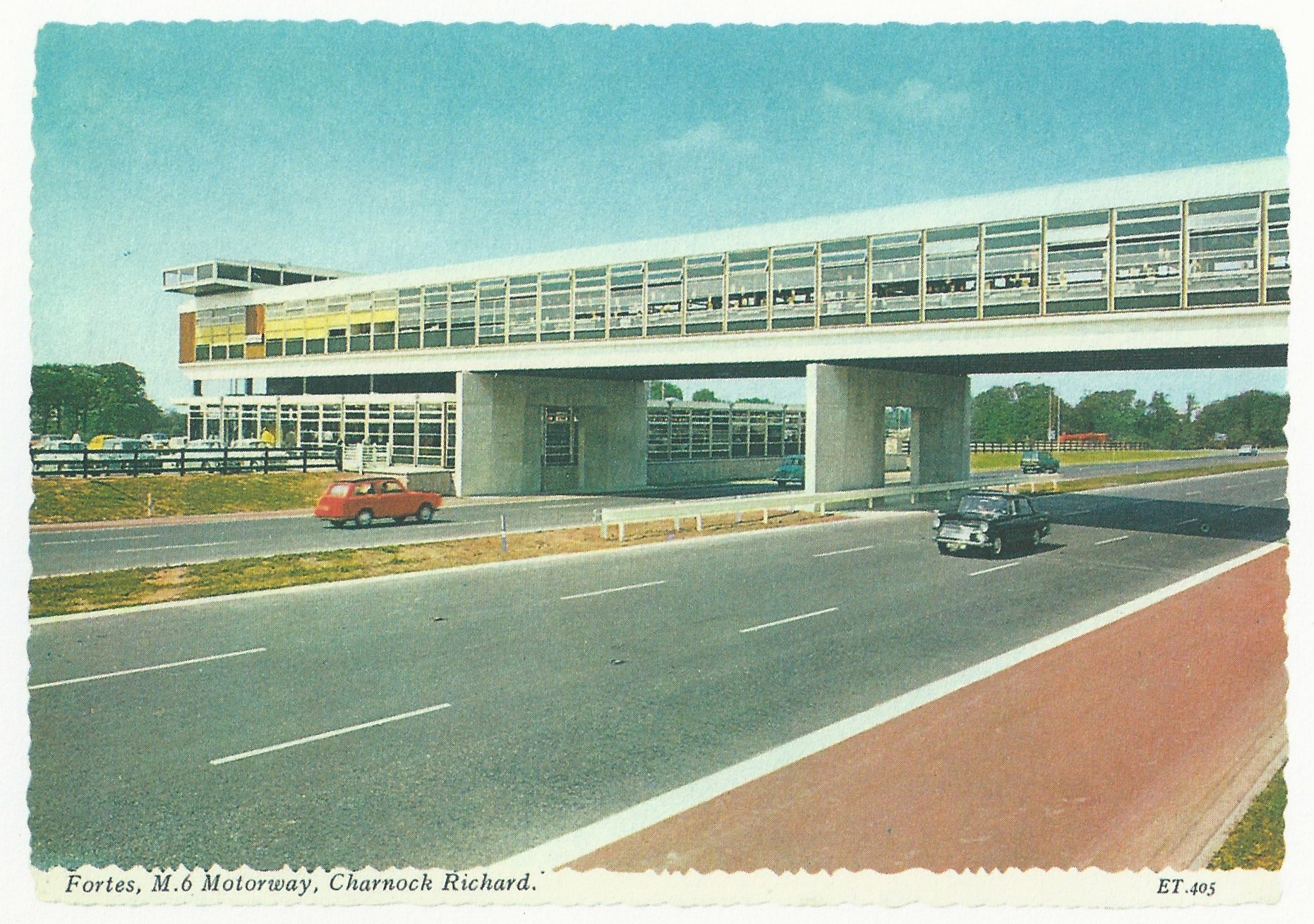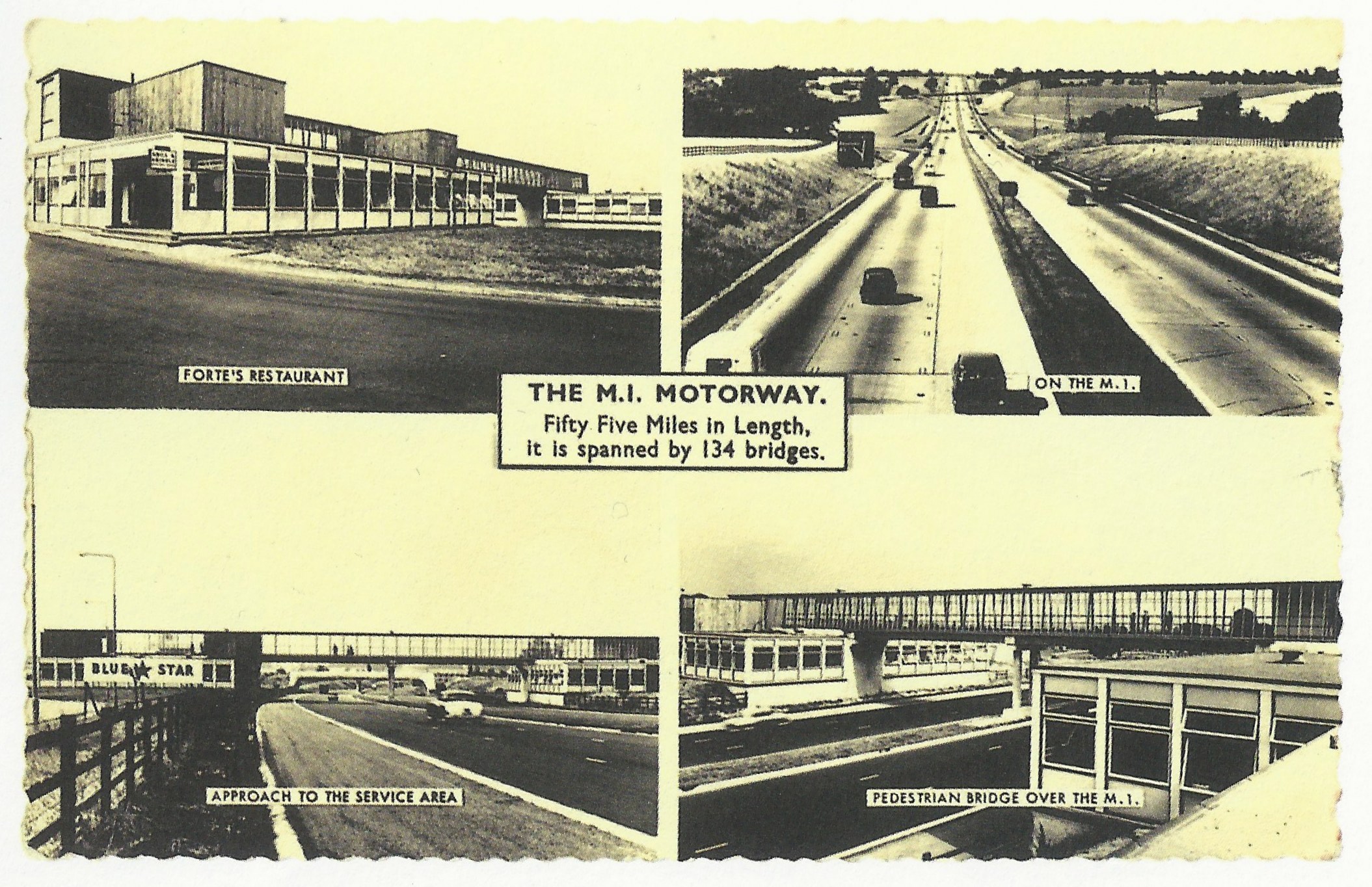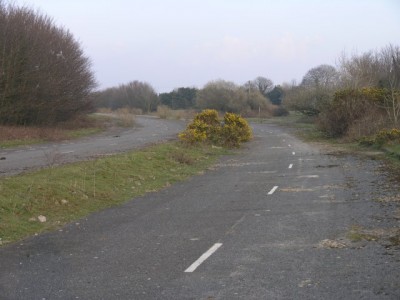You have no items in your cart. Want to get some nice things?
Go shopping“The road is almost a separate country, one that remains under-explored not because it is remote and inaccessible but because it is so ubiquitous and familiar.” —Joe Moran, On Roads.

Leave the slip road, nudge out into the slow lane between a Norbert Dentressangle lorry and a Volvo estate towing a caravan with mint-green go-faster stripes. Wherever that slip road led from, you’re on the motorway now. You could be anywhere.
Motorways are uncanny non-locations, spaces we know intimately but never set foot on. They are so ingrained in our lives, so iconic, so socially transformative, that it’s perhaps surprising they don’t feature more often in literature.
Attempting to redress the imbalance, on Wednesday night the 2012 London Literature Festival hosted the launch of In the Company of Ghosts: The Poetics of the Motorway, a new collection of poetry, prose and fiction inspired by the motorway. The collection, published by poetry specialist erbacce-press, intersperses poems with prose musings and explorations of the history, imagery and influence of the motorway. It’s an eclectic mix, from poems making only oblique references to roads, to detailed discussions of the landscape of the M62.
I was sold on the title alone. I love motorways. I think it stems from a childhood belief that my dad built the M5. In reality he got a student holiday job in 1970 with a crew building a bridge over Junction 13 at Whitminster. Dad was on the Big Pour, tasked with the 24-hour slog to fill a bridge-shaped mould with concrete before it set, waving an endless stream of concrete trucks into place, unable to stop even long enough to deal with the hole in his boot that was gradually filling up with liquid concrete.
By then, the British motorway-building programme was on the cusp of decline. That same summer of 1970, the Westway opened in London. Unlike previous motorways, which had been greeted with public fascination, the press attention this time around was less friendly. The Westway ploughed through streets of London suburbia, feets away from the bedroom windows of once-tranquil Victorian terraces. Public sentiment towards motorways – once seen as a means of escape, both literal and symbolic – began to turn.

The novelist best known for examining this ambivalence towards the motorway is J. G. Ballard. The Westway is the setting for Crash and its spiritual sequel, Concrete Island. Crash may be the better known of the two, but it’s the plot of Concrete Island that comes to mind every time I drive over the muddle of lanes and bridges where the road flies past White City: a blown tyre sends architect Robert Maitland’s Jaguar plunging through a temporary barrier and down an embankment, ending up on a patch of wasteland hemmed in by three roads. Injured and dazed, Maitland is stranded, unable to attract the attention of the drivers above, unable to find a way out.
I’ve always shared Ballard’s fascination with these stray bits of motorway land, snipped away from the rest of the countryside like fabric off-cuts. They are familiar but unreachable. We see them, but don’t notice them. Crashing onto the island, Maitland enters a weird through-the-looking-glass world. He becomes invisible himself: “A defective tyre-wall, a bang on the head, and he had suddenly exited from reality.”
Ballard’s motorways are metaphors for alienation, the dissociation of modern life. He saw the car as the ultimate expression of the 20th century, and the motorway as its symbolic architecture. He wrote in Drive magazine in 1971, “If I were asked to condense the whole of the present century into one mental picture I would pick a familiar everyday sight: a man in a motor car, driving along a concrete highway to some unknown destination.”
The concrete island is a map of Maitland’s modern mind; he is also cut off emotionally; from his wife and son, from his mistress, from his past. It seems right he should end up there. Perhaps he even caused the crash to orchestrate his exit from reality. In the end, Maitland starts to feel at home in the other-world of the motorway.
Will Self, a self-confessed motorway obsessive influenced by Ballard, also employs the symbolism of the Westway in his novella Bull: “The line of the flyover formed the stick shape of an enormous woman. The head was the elevated roundabout at White City. From there, one extended arm was formed by the motorway spur that ended in Shepherd’s Bush roundabout. The other arm was flung over the woman-figure’s head. It arced into a three-lane elbow, then placed its hand in Acton.”
In Self’s short story “Waiting”, a man stuck in a jam on the M25 is obsessed with how much of modern life is spent in that state: “…while they wait nothing is happening, and when they stop waiting nothing will happen either, and while they have waited nothing will have occurred…” Unable to wait any longer, he leaps from the car, leaving his friend stranded on the motorway.
The motorway is a time rather than a place; a time apart from the real world. A tailback pauses motorway time, reduces it to a point, a long moment. Julio Cortázar’s 1966 story “The Southern Thruway“ imagines a monster jam on a motorway outside Paris. No one can leave their car in case the queue moves on a few feet while they are gone. Hours turn into days. Small alliances begin to form between groups of cars. Leaders emerge. Food and water are shared, rumours move up the line about the cause of the tailback. As the weeks go by, foraging parties go out into the countryside for food. A man begins a relationship with the woman in the next car. Later she is expecting a child.
Here, time is paused so long that it stops being motorway time at all and becomes real life again. A white butterfly lands on a windshield, its wings “spread in brief and perfect suspension“, an impossible image of stillness, of time passing normally on the motorway. When the jam finally clears and the group of familiar cars breaks up, the reality of the motorway seems brutal, bizarre: “not knowing why all this hurry, why this mad race in the night among unknown cars, where no one knew anything about the others, where everyone looked straight ahead, only ahead.”

Alienation also runs through the work collected in In the Company of Ghosts, from Hazel Mutch’s poem “The New M62 Interchange” (“There I was alone in the night suddenly / curving / in a camber of shellgrip”) to David Lawrence’s study of the “particular isolation” of the night-time geography of service stations. In Emma Brooker’s short story “Homes not Roads”, a woman stumbles across a camp of Twyford Down protestors. Swept up in the moment and persuaded to vandalise a bulldozer, she feels “…elation, a thrill of pride, a sense of release from all the things that tied her to this world.” When the motorway comes despite the protest, the “bleak, white ravine” that rips through the downs is symbolic of that tear, that absence at the heart of modern life.
In the foreword to In the Company of Ghosts, Edward Chell talks about the nostalgia of the motorway: what is modern becoming dilapidated, old, reflecting back at us “the fallibility of our plans and dreams”. It is perhaps this awareness that gives a sadness to the physical poetry of the motorway – the concrete arches, abutments and stanchions, piers and cantilevers, the interchanges shaped like cloverleaves, trumpets and split diamonds over which we trace our desire lines, the routes between where we are, and where we want to go.
Subscribe to Litro Lab via itunes RSS | More

About Emily Cleaver
Emily Cleaver is Litro's Online Editor. She is passionate about short stories and writes, reads and reviews them. Her own stories have been published in the London Lies anthology from Arachne Press, Paraxis, .Cent, The Mechanics’ Institute Review, One Eye Grey, and Smoke magazines, performed to audiences at Liars League, Stand Up Tragedy, WritLOUD, Tales of the Decongested and Spark London and broadcasted on Resonance FM and Pagan Radio. As a former manager of one of London’s oldest second-hand bookshops, she also blogs about old and obscure books. You can read her tiny true dramas about working in a secondhand bookshop at smallplays.com and see more of her writing at emilycleaver.net.






In the Company of Ghosts is available direct from erbacce-press at http://www.erbacce-press.com
Beaconsfield art space in Kennington are hosting a celebration of In the Company of Ghosts on July 27th, 6-8.30 with Will Alsop, David Lawrence and sonic performance poetry by Jennifer Cooke.
https://beaconsfield.ltd.uk/projects/poetics-of-the-motorway/